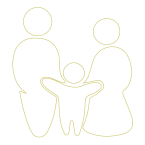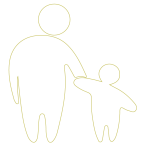A Recovery Pathway That Worked for Me – Building a Better Foundation
There are many pathways an individual can take to help them in their recovery process. These pathways are not only about getting free of the craving, but it is about healing your mind, body, and spirit. My pathway to recovery hasn’t always been traditional, but I found what works me.
I realized I needed to find my personal pathway to recovery in May 2016. I was sick of feeling unfulfilled in my life and tired of making poor choices. I had been arrested for a DUI and while sitting in the cold jail I had the chance to reflect on where my life was going and began to come to the realization that I needed to build a foundation for myself and get the help I desperately needed.
This self-reflection was the beginning of my turning point. It started simply for me: I began attending AA meetings and focused on my self-care. Under the direction of my council, I continued to attend AA meetings, focused on my education, and began working on building a better foundation for myself.
Today, I am working on helping others improve their life in recovery. By sticking to what worked for me, my pathway to recovery has led me to working as a Certified Peer Recovery Specialist. I’ve learned that I have compassion for individuals still finding their path out of addiction and that I can use my lived experiences and the struggles I faced to help others. I don’t want to see another individual stuck in the situations I experienced.
Each individual walking the path of addiction has a different story, no two are alike and each situation requires different approaches. Being able to even just be a part of that process in helping someone obtain the services they need gives me a sense of pride in my own recovery. I am thankful to be able to help others through my work here at Center For Family Services.
When I help a client identify just one internal motivator that helps them realize recovery is possible, it brings me satisfaction. Satisfaction that I’m doing what I need to do and I’m right where I’m intended to be.
To become successful in one's recovery, you must be open to going through many channels until you find the right one. Individuals can utilize Medication-Assisted Treatment to help reduce the intensity of withdrawal symptoms, cravings and reduce the likelihood of use or relapse. Working on yourself isn't only about medication but about education and willingness to change one's situation.
Acceptance and Commitment Therapy allows a client to distinguish between thoughts and behaviors. This therapy involves developing strategies to tolerate craving, negative emotions, thoughts, feelings, and bodily sensations. Another method is Cognitive Behavioral Therapy which focuses on challenging and changing cognitive distortion and behaviors.
There are several other therapies, but those are to be discussed between you and your counselor. Finding a pathway to recovery is a personalized process and will take time and exploration. To remain successful in your recovery, you must find what works for you.
Recovery is a lifelong process. In order to remain successful, one must work at it every day. I choose to continue to further my education to help as many people as possible start their own journey from addiction to recovery. Everyone requires services that are specific to them, by continually working on myself and exposing myself to these situations, I’m able to offer the encouragement they need. By helping others find their recovery I’m doing my part to remain thankful for mine.



